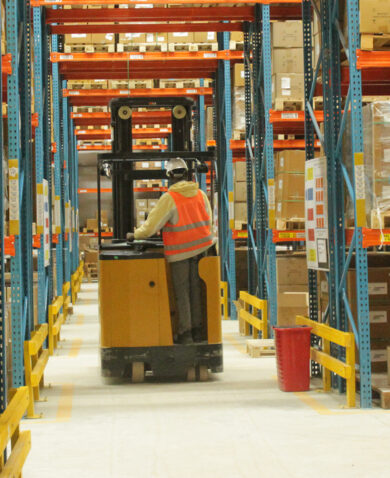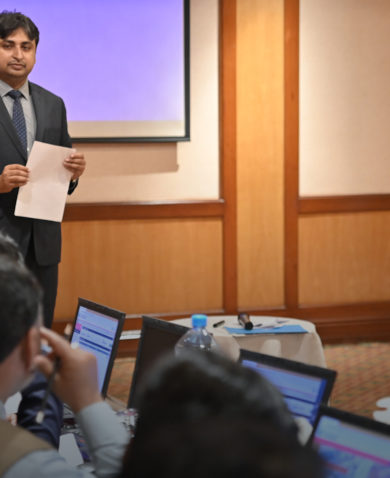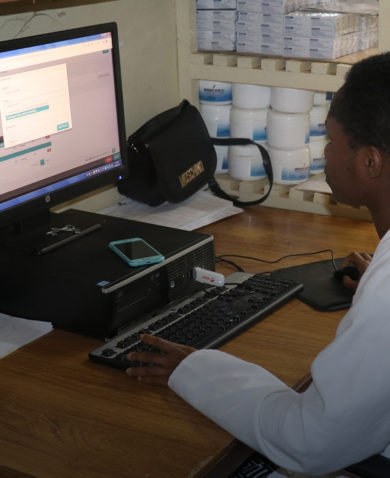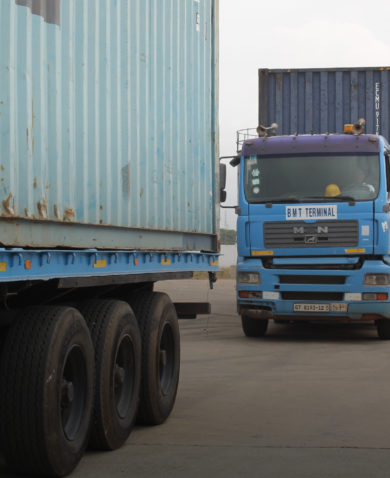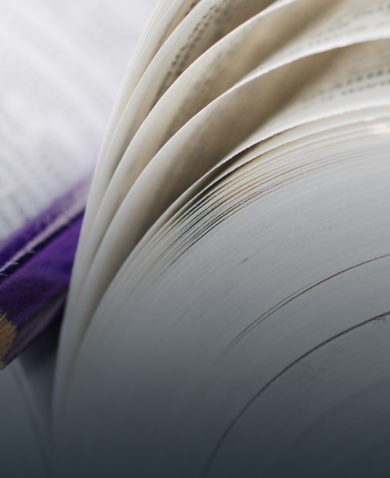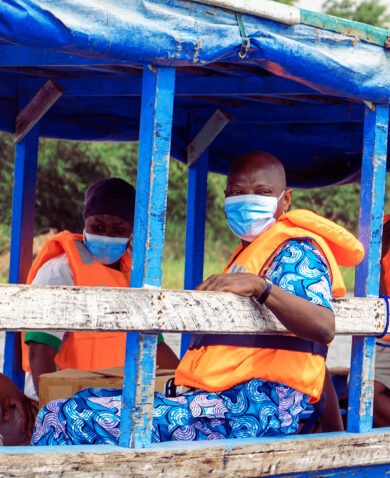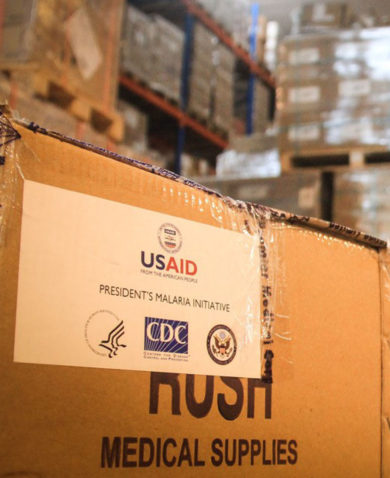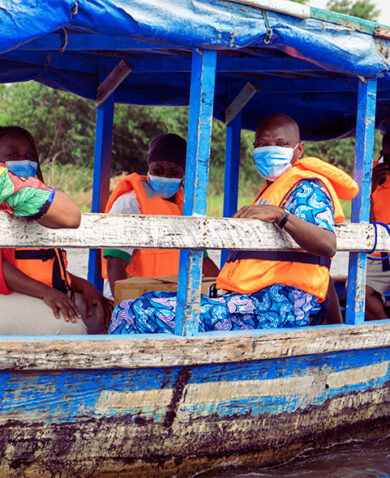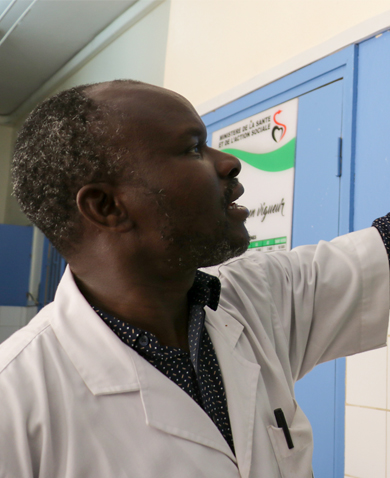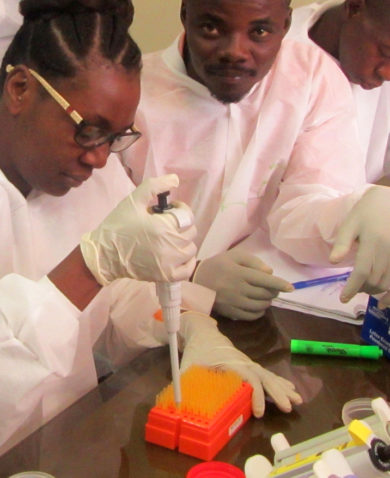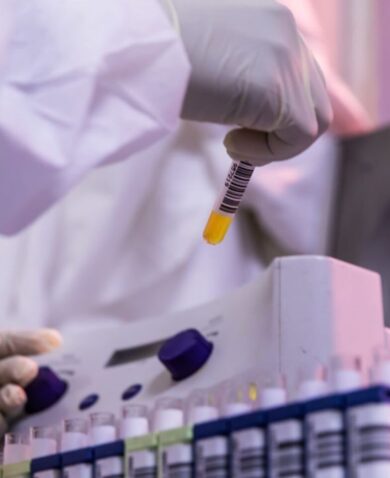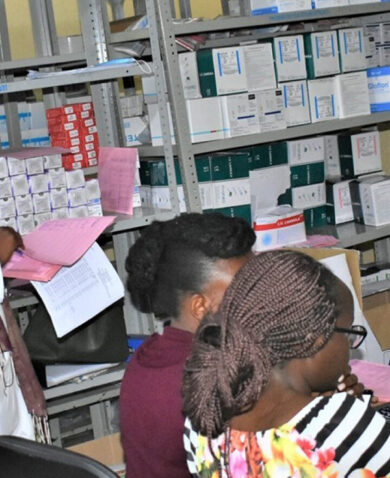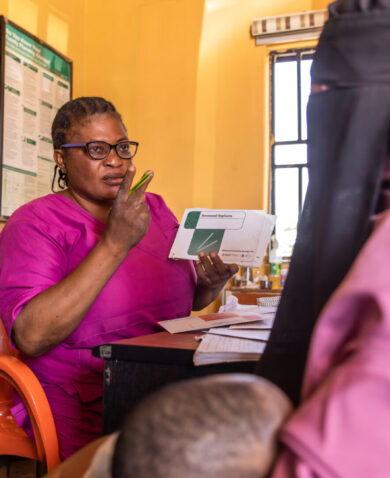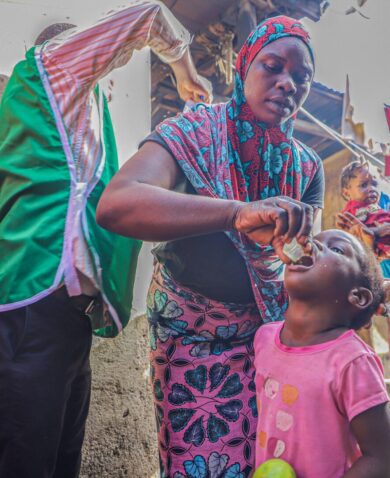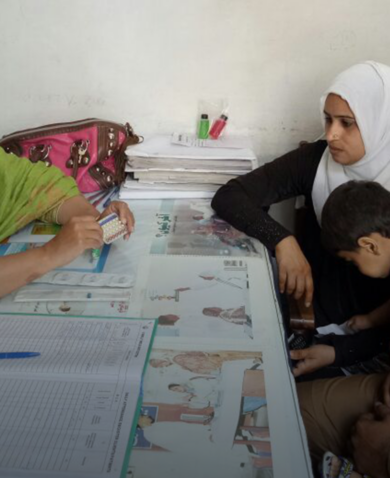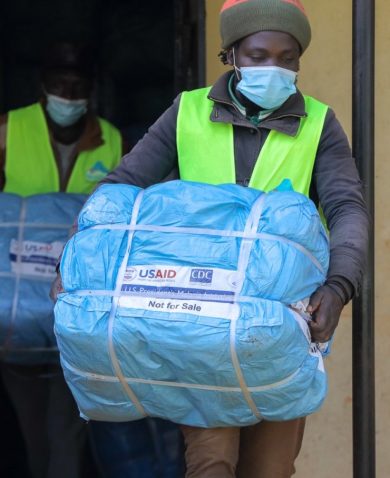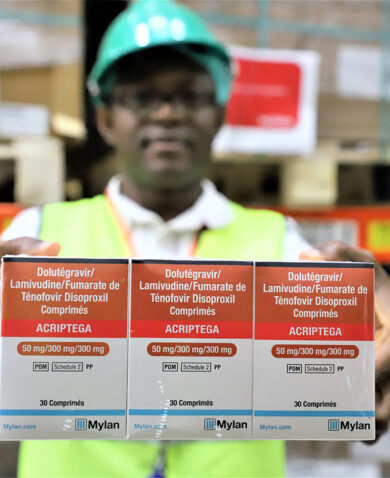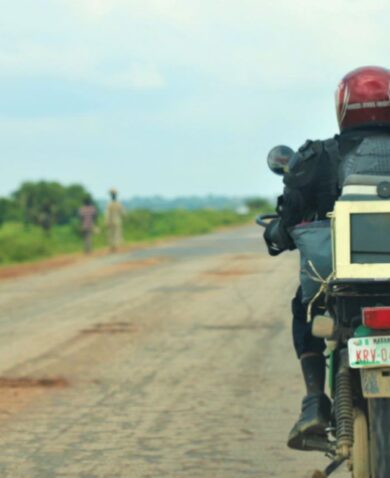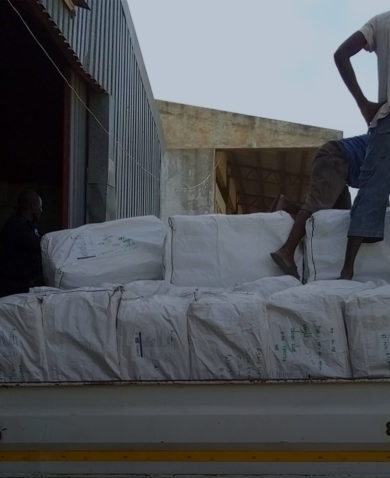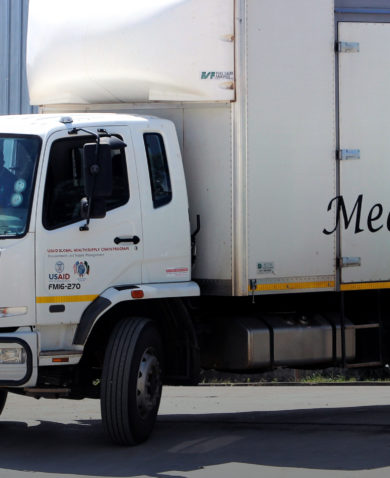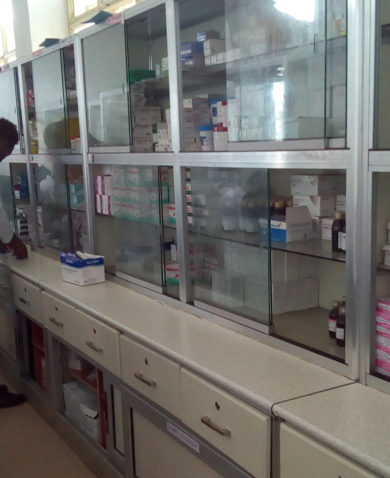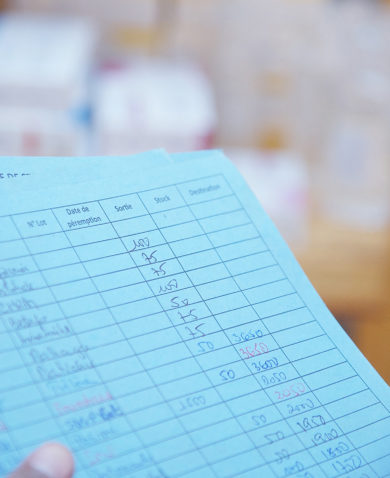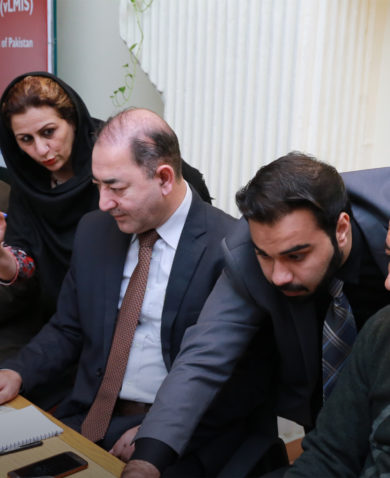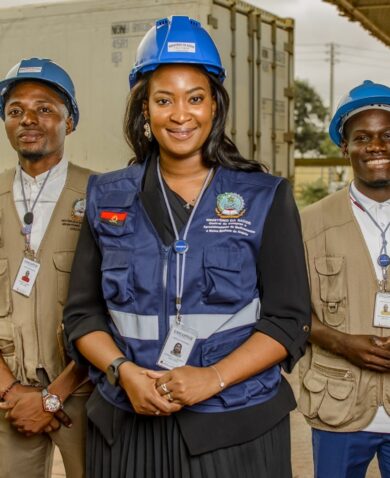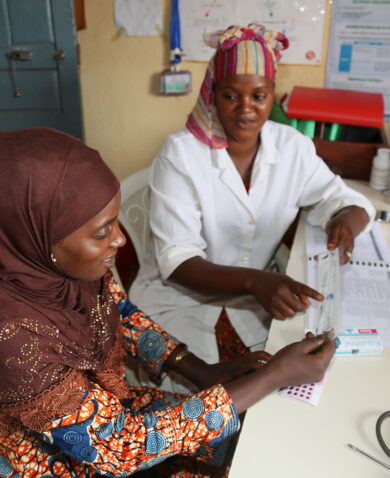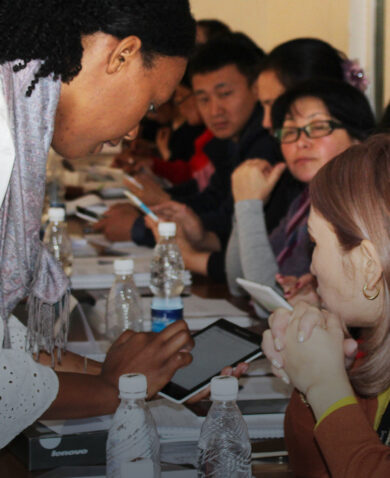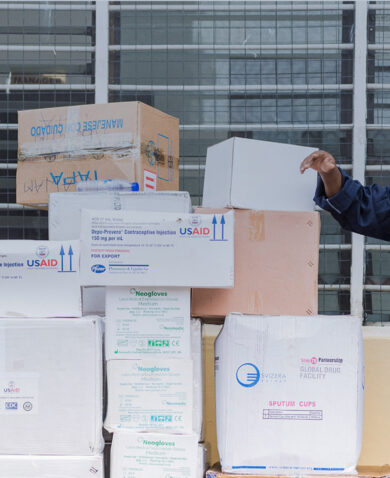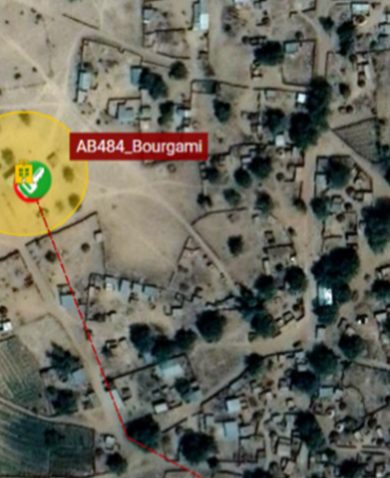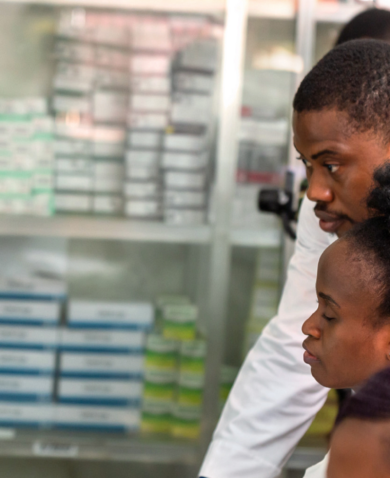The Temperature Excursion Study
Health product manufacturers and shippers go to great lengths to ensure appropriate storage conditions for cold-chain health commodities, using specialized equipment including vehicles with temperature-controlled truck beds or refrigerated shipping containers. On the other hand, the storage conditions for ambient (non-cold chain) products are not well documented or understood, despite international good distribution practices, which include having defined intervals for checking temperatures with records of data available for review.
The Temperature Excursion Study, funded by the Bill & Melinda Gates Foundation, works with health product manufacturers and shippers to place data collecting sensors on pallets. Whether shipped by air or by sea, the study provides visibility into the conditions of ambient products from the time they leave the manufacturer’s first warehouse until the time they reach the port of entry or central level of the in-country supply chain at the country of destination. These sensors collect a range of information including temperature, humidity, shock, pressure, light, and movement. When the loggers reach their destination, the collected data is analyzed and sorted into supply chain segments based on location or activity.
With these data sets, the foundation, pharmaceutical developers, and manufacturers can develop the ability to adequately stabilize pharmaceutical products in low and middle-income country regions, especially in sub-Saharan Africa. The data can lead to refinements in product packaging or handling.


